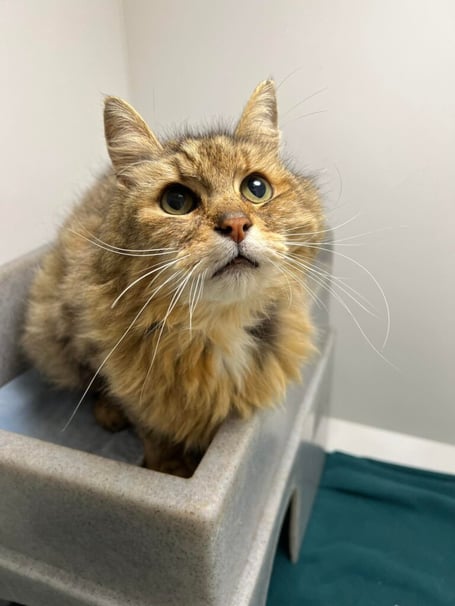If you love cats then you won’t be surprised that they have some incredible natural features that make them extra special, with one of these being their mouths.
For example:
•A cat’s jaws can’t move from side to side like a human’s, and can only move up and down. This makes it difficult for them to grind and chew their food, which is why they tear at larger chunks to make them more digestible, and swallow smaller pieces of food, like cat biscuits, whole.
•Rather than scoop water into their mouths like dogs do, cats lap at it by moving their tongues very quickly to create a column of water. They then quickly close their mouths around the column and swallow the water without getting their chin or their whiskers wet.
•Not only are cats able to drink without splashing their faces, they are adept at keeping their whole bodies clean. Their tongues are covered in tiny, curved spines which give them a rough texture. These spines work both as a comb, untangling knots and smoothing fur, and they are also able to carry large amounts of saliva from the mouth to the fur allowing for any unwanted dirt to be washed away with ease. Being fastidious about keeping clean is mainly due to a cat’s survival instincts – the cleaner the cat, the less smell they emit and so they are less able to be tracked and killed. This also works when they are tracking their own prey – an undetected, fragrance-free cat will be more successful when out hunting.
•Cats can’t taste sweet flavours, even though they have sophisticated taste buds. They simply don’t have the receptors in their brains to recognise a sweet taste. They are, however, much better at detecting bitter tastes, as this helps them identify foods that could be poisonous.
•Cats are born with an amazing number of teeth in such tiny mouths: kittens have 26 baby teeth which fall out when they are about three months old and are they are replaced with 30 permanent adult teeth (compared to humans who are usually born toothless, and then develop 20 baby teeth and 32 adult teeth).
•Due to their low-sugar diet, differences in mouth bacteria and the shape of their teeth, cats don’t get cavities in the same way that humans do. But they can suffer from other dental issues, most commonly gum disease, which are usually due to an inappropriate diet. A cat’s teeth are designed to crunch bones and a modern diet of soft cat food isn’t ideal.
Sweet 10-year-old Sandy has had some dental work carried out since he arrived in our cattery, and he now has good oral health – and excellent all-round health. He has been a bit of a roamer in his time, visiting different houses for food and attention. He has clearly enjoyed being a popular neighbourhood cat and living a life of freedom, but now that he’s a bit older he requires a ‘full time’ owner who will attend to his every need.
His long coat needs expert and regular grooming, and he simply wasn’t getting this living life as a wanderer, and his fur became very matted and dirty.
He’s a bit grumpy when he’s being brushed, and so his new owner will need to be quietly determined!
Given he came from the Union Mills area we can’t rehome him there in case he starts to wander again.
He will need to reorientate himself in a new location, and learn that having creature comforts in a home of one’s own is a much better choice than ‘life on the road’.
Sandy is fully vaccinated, health-checked and microchipped and so his adoption fee of £75 is great value for money.
And you can’t put a price on the feeling you get when you adopt an animal rather than buy one – ‘rescue’ really should be everyone’s favourite breed.




